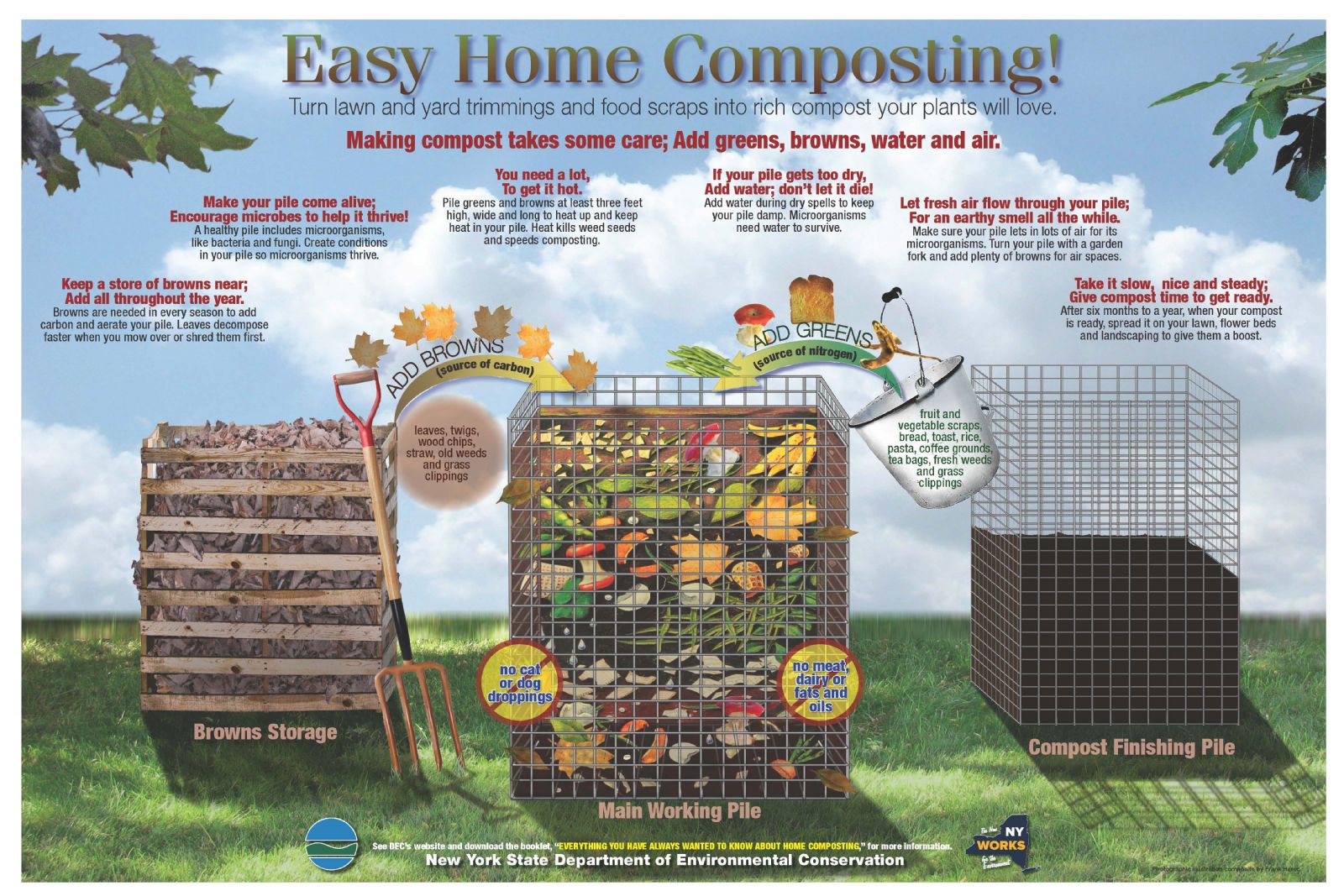Backyard Composting
Backyard Composting
The EPA estimates that more food reaches landfills than any other single material in our everyday trash, constituting 22 percent of discarded municipal solid waste. Composting your food waste reduces methane emissions from landfills and is one of the easiest ways to have a significant positive environmental impact. Compost increases soil health, creating stronger healthier plants, flowers, grass, and trees, reducing their susceptibility to disease and reducing the need for pesticides and chemical fertilizers. Best of all? It’s easy! We have lots of resources to help get you started to trouble shoot any issues you may be having. We'll start with the basics and list more indepth resources at the bottom.

Basic Rules for Backyard Composting:
- A ratio of 2:1 of "browns" to "greens." Other proportions of browns to greens can still create good compost, but may decompose more slowly. See our full materials guide here.
- Browns are materials high in carbon, such as: leaves, shredded paper, newspaper, cardboard, dryer lint, straw, wood chips, napkins, and papertowels.
- Greens are materials high in nitrogen, such as: fruit and vegetable scraps, grass clippings, coffee grounds and filters, and eggs shells.
- Size matters! The smaller the particle the faster it will break down. If your item is larger than an apple, chop it up. This also includes yard waste, such as brush and branches.
- Maintain the moisture as damp as a wrung out sponge.
- Do not include any meat, bones, fish or dairy products in your backyard compost pile.
- Do not include any compostable products, such as bags, utenstils, or containers. While these are suitable for industrial scale composting facilities, they will not break down in your backyard compost pile.
- Do not include any treated wood or saw dust. Also wood ash is not suitable for composting.
Now that you've got the basics, check out these helpful backyard composting resources:
Town of Canandaigua:
Backyard Composting Materials Guide
Cornell University Resources:
Comprehensive Backyard Composting Overview
Want to learn more about types of bins?
Concerned about pests? Check out this resource for how to prevent them.
New York Times Climate Fwd: A compost bin in the living room
Ontario County Resources: http://ontariocountyrecycles.org/158/Organics.
NY State DEC Resources: https://www.dec.ny.gov/chemical/8799.html
Cornell Cooperative Extension Resources: http://cceontario.org/gardening/compost-resources
Have food that can be donated? Check out Ontario County Food Pantries link for donation locations.
TRANSFER FACILITY HOURS
Wednesday: 4:00pm - 8:00pm
Saturday: 8:00am - 12:00pm
Sunday: 8:00am - 12:00pm
Facility Address:
5440 Route 5 & 20 West
Canandaigua, NY 14424
Questions?
Contact us at 585-394-3300 or email transferstation@townofcanandaigua.org
